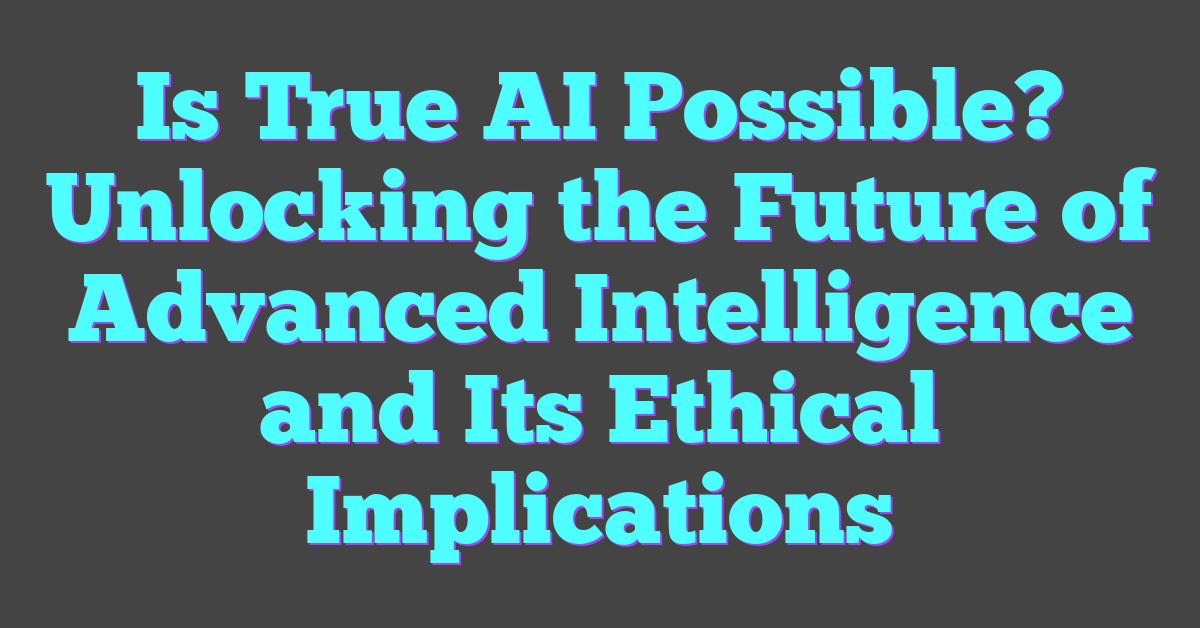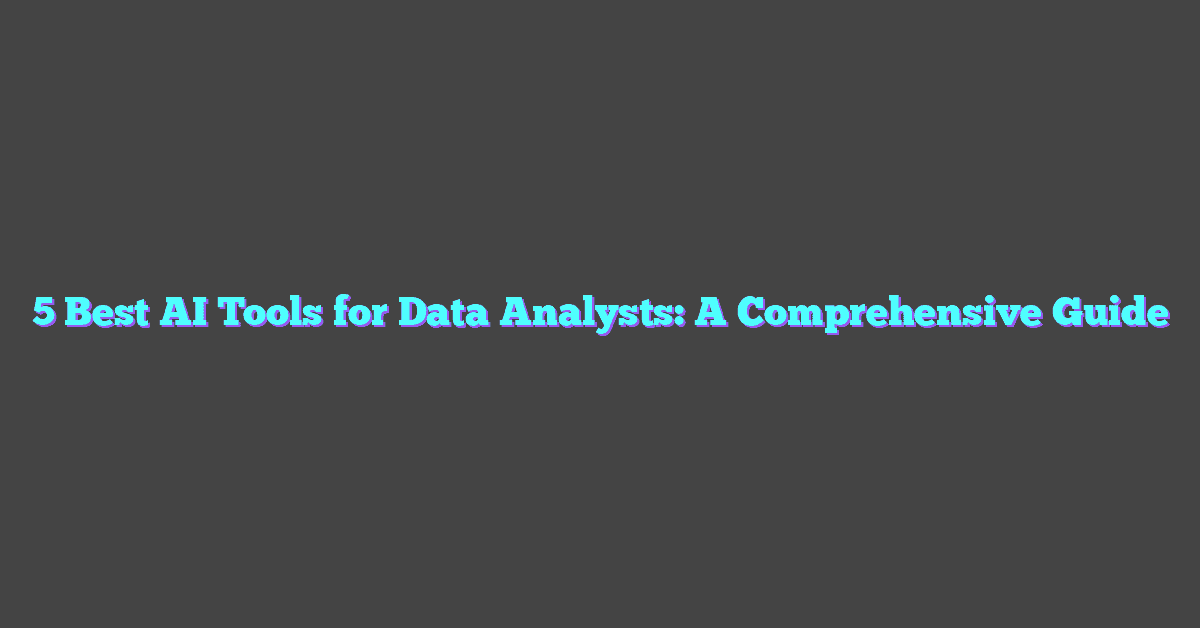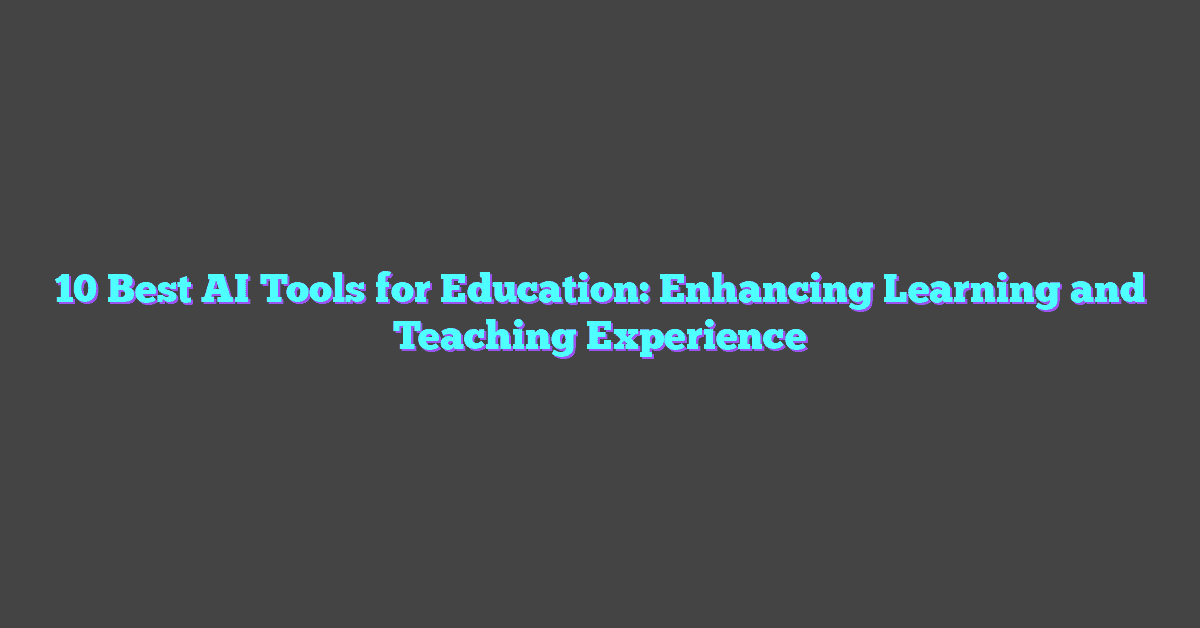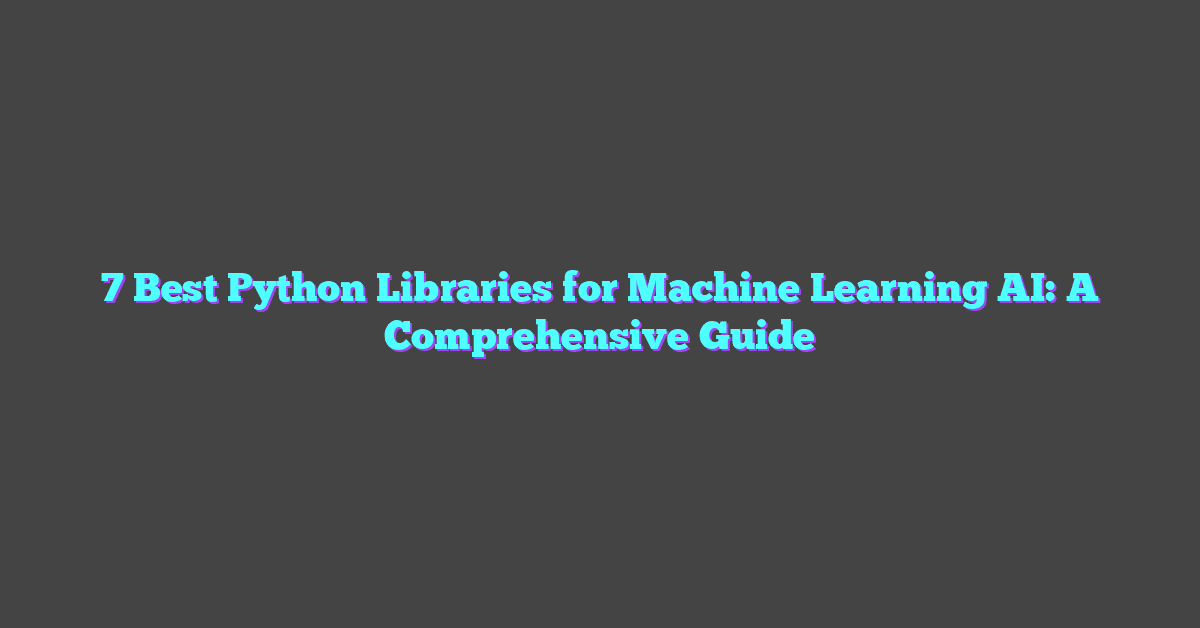Artificial Intelligence has come a long way, from simple algorithms to sophisticated systems that can mimic human behavior. Yet, the question remains: is true AI—an intelligence indistinguishable from human thought—actually possible? This tantalizing idea has captured the imagination of scientists, engineers, and even philosophers.
In today’s world, AI can beat chess champions and recommend your next favorite movie, but can it ever achieve genuine consciousness or emotions? The journey to true AI is filled with fascinating challenges and ethical considerations, making it one of the most exciting fields to watch. Let’s dive into the possibilities and limitations that shape this quest for true artificial intelligence.
Understanding True AI: Definitions and Expectations
True AI, also known as Artificial General Intelligence (AGI), embodies the goal of creating machines with the ability to understand, learn, and apply knowledge across various domains, akin to human intelligence.

What Is True AI?
True AI or AGI is characterized by its ability to perform any intellectual task that a human can. Unlike narrow AI, which excels in specific areas like language translation and image recognition, AGI aims to replicate human cognitive abilities, including problem-solving skills and emotional understanding. True AI would not be confined to predefined tasks; its intelligence would be adaptable and broad, capable of learning from experience just as humans do.
Current Perceptions and Expectations
There is a broad spectrum of perceptions and expectations about True AI. Many envision it revolutionizing industries, providing unprecedented levels of automation and problem-solving capabilities. Conversely, there are concerns about its ethical implications, like AI bias and job displacement. Skeptics debate its feasibility, citing the complexity of replicating human consciousness and emotional depth in a machine. Yet, the pursuit of True AI continues to push the boundaries of what’s possible in AI research and development.
Technological Advancements in AI
The quest for True AI has led to significant technological advancements. Researchers and developers have made strides in various aspects of artificial intelligence, pushing the boundaries of what’s possible.
Milestones in AI Development
AI development has seen several key milestones that have advanced the field. In 1956, John McCarthy coined the term “Artificial Intelligence,” marking the start of AI as a formal discipline. The development of the Dartmouth Conference led to the first AI programs capable of rudimentary task performance.
The 1980s saw the rise of expert systems, which relied on rule-based algorithms to simulate the decision-making abilities of human experts. In 1997, IBM’s Deep Blue defeated world chess champion Garry Kasparov, demonstrating AI’s potential in strategic game-playing. Google’s DeepMind achieved a landmark in 2016 when AlphaGo defeated a world champion Go player, showcasing deep learning’s capabilities.
Challenges in Achieving True AI
Despite these milestones, achieving True AI poses significant challenges. One major hurdle is creating machines with common sense, the ability to understand and reason about everyday situations. Current AI systems excel in specific tasks but lack the adaptable intelligence necessary for general problem-solving.
Ethical considerations also present challenges. Issues such as AI bias, where algorithms may unfairly favor certain groups, must be addressed. Developing AI that can understand and replicate human emotions and consciousness remains a profound challenge, with many researchers doubtful about the feasibility of this goal.
Scalability is another concern. Training AI models, especially deep learning networks, requires substantial computational resources. As AI systems grow more complex, the demand for processing power increases exponentially, posing practical constraints on development.
Technical, ethical, and practical challenges continue to shape the landscape of AI research. These hurdles must be overcome to achieve the vision of True AI, driving the ongoing pursuit of advancements in artificial intelligence.
Ethical Considerations
True AI, if realized, brings significant ethical concerns that extend beyond technical challenges. This section delves into these concerns and how they impact the development and deployment of AI systems.
Risks and Benefits of True AI
True AI promises numerous benefits but also carries inherent risks.
Promised Benefits: True AI has the potential to revolutionize industries by automating tasks, improving decision-making, and enhancing productivity. In healthcare, for example, AI could assist in diagnosing diseases and personalizing treatments. Financial institutions might use AI to detect fraud and optimize investment strategies.
Inherent Risks: One of the main risks involves AI bias, where systems could reinforce existing prejudices, leading to unfair treatment in areas like hiring and lending. Unchecked, True AI could also act unpredictably, posing security risks. Autonomous systems, for instance, might make decisions that humans find hard to understand or control.
Many experts, including those from the Future of Life Institute, emphasize balancing these risks with benefits, advocating for robust ethical guidelines to govern AI use.
Regulatory and Ethical Frameworks
Regulatory and ethical frameworks are vital for ensuring AI benefits society while minimizing risks.
Existing Frameworks: Organizations like the European Union have introduced regulations such as the General Data Protection Regulation (GDPR), focusing on data privacy and protection. Similarly, the Institute of Electrical and Electronics Engineers (IEEE) has developed ethical guidelines for AI design and usage.
Need for Evolving Frameworks: As AI technologies rapidly evolve, so must the frameworks governing them. Regulatory bodies need to consider factors like transparency, accountability, and fairness in AI systems. Collaboration between governments, industries, and academia is essential to create adaptive guidelines addressing emerging AI challenges.
By addressing these regulatory and ethical considerations, society can better navigate the complex landscape of True AI development and ensure that the technology aligns with human values and priorities.
Future Prospects
Future developments in True AI hold exciting potential across multiple domains. Experts see a world where AI systems become seamlessly integrated into daily life and industries.
Predictions and Possible Scenarios for True AI
Experts foresee several scenarios for True AI development. One prediction is the rise of AI systems with advanced general intelligence, capable of understanding and generating contextually relevant responses across varied subjects. Such systems could bridge gaps in education, providing personalized tutoring and support.
Autonomous decision-making in healthcare may transform patient care. AI could diagnose conditions, recommend treatments, and manage patient care with a high degree of accuracy. In finance, True AI might predict market trends, automate trading, and manage risks with greater precision.
Other possible scenarios include AI-driven environmental monitoring, where systems track climate changes and suggest actionable steps. True AI in smart cities could optimize traffic flow, reduce energy consumption, and enhance public safety.
Each scenario involves both opportunities and challenges. Ethical considerations, data privacy, and ensuring AI aligns with human values remain critical. Future research and collaboration across disciplines will be key in navigating these complexities.
Conclusion
The journey toward True AI is filled with both promise and complexity. While the potential benefits in areas like healthcare and finance are immense, it’s crucial to navigate the ethical challenges and risks. Ensuring data privacy and aligning AI with human values will require constant vigilance and collaboration across disciplines.
As we look to the future, the seamless integration of advanced AI into everyday life could revolutionize how we live and work. However, this vision will only be realized through responsible development and thoughtful regulation. The quest for True AI is ongoing and demands our collective effort and wisdom.
Frequently Asked Questions
What is True AI?
True AI, or Artificial General Intelligence (AGI), refers to systems that possess the ability to understand, learn, and apply knowledge across a wide range of tasks, similar to human intelligence.
What are the milestones in AI development?
Key milestones include the invention of the Turing Test (1950), the development of expert systems in the 1970s-80s, and the rise of machine learning and deep learning techniques in recent years.
What are the ethical concerns associated with AI?
Ethical concerns include bias in AI algorithms, data privacy issues, the potential for job displacement, and the need to ensure AI systems align with human values and societal norms.
How can AI benefit sectors like healthcare and finance?
In healthcare, AI can aid in diagnostics, personalized treatment plans, and predictive analytics. In finance, it can improve fraud detection, optimize trading, and provide personalized banking services.
What challenges are faced in achieving True AI?
Challenges include technical limitations, ethical considerations, ensuring alignment with human values, safeguarding data privacy, and creating robust regulatory frameworks.
Why is regulation important in AI development?
Regulation helps ensure that AI systems are developed and deployed responsibly, mitigating risks such as bias, data privacy breaches, and unintended consequences, while promoting fairness and transparency.
What future prospects does True AI hold?
Future scenarios for True AI include advanced general intelligence aiding education, healthcare, and finance, monitoring the environment, and optimizing smart cities for improved quality of life.
What role does interdisciplinary collaboration play in AI?
Interdisciplinary collaboration is crucial for addressing the technical, ethical, and societal challenges of AI, ensuring comprehensive solutions that integrate diverse perspectives and expertise.




